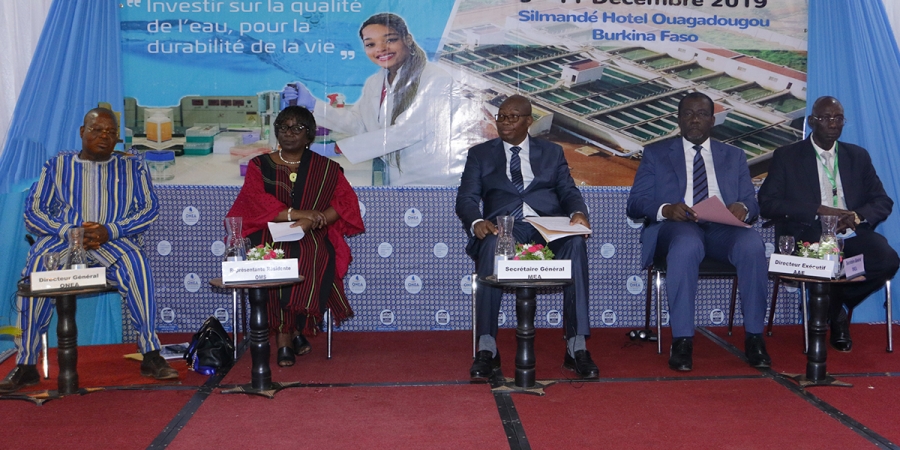Even though access to safe drinking water and sanitation has been recognized as a human right since 2010, 1 in 3 people in the world do not have access to safe water. These alarming data, taken from a new report by UNICEF and the World Health Organization, were highlighted on December 9 in Ouagadougou, Burkina Faso, at the opening of the international symposium on water quality organized by the African Water Association in partnership with ONEA and USAID.
The consequences of this situation are also devastating. Indeed, about 2.6 million people die each year from water-related diseases, making unsafe water one of the leading causes of death in the world.And the human disturbing action is pointed out by Mr. Alassoun Sori, Secretary General of the Ministry of Water and Sanitation of Burkina Faso. For him, "the uncontrolled use of various substances harmful to agriculture, the development in recent years of mining activities with the uncontrolled use of chemicals, the excretion of animals in surface waters, generate various types of pollution and thus the deterioration of water quality,".
To address this situation, Mr Frédéric François KABORE, Managing Director of ONEA, called on the federation of stakeholders to achieve target 3 of Sustainable Development Goal 6 (SDO), which plans to improve water quality by reducing pollution by 2030, by eliminating waste dumping and minimizing emissions of chemicals and hazardous materials, halving the proportion of untreated wastewater and significantly increasing the safe recycling and reuse of water worldwide.
Mr Sylvain Usher, Executive Director of AfWA, for his part, wanted to be pragmatic. He invited his peers to take action." We have a great challenge to overcome. Our countries, and therefore we, scientists, technicians and researchers, should intensify our efforts in terms of water quality. We have the intelligence, skills and resources to do so. Let’s act now because the ODD agenda imposes it on us, and if we don’t do so, it’ll be forever”.
However, these actions will only succed if they are supported by States. That is why, the World Health Organization’s Resident Representative in Ouagadougou, Ms Alimata Jeanne Diarra Nama, called on governments to more involved in issues of access to safe drinking water: "When governments will insure access for everyone to safe water, sanitation and well-managed water resources, the fight against a large number of diseases will be greatly improved."
It should be noted that water quality is not an accidental issue for the African Water Association. It’s a whole programme to strengthen the capacities of the water quality control laboratories of water utilities developed and implemented by AfWA, with funding from USAID. And this symposium was part of a mid-term review of programmes to enable experts to capitalize on the actions undertaken in recent years and provide guidelines for a more effective consideration of water quality by the various stakeholders in the sector and particularly the governing authorities.

 English
English  Français
Français 
